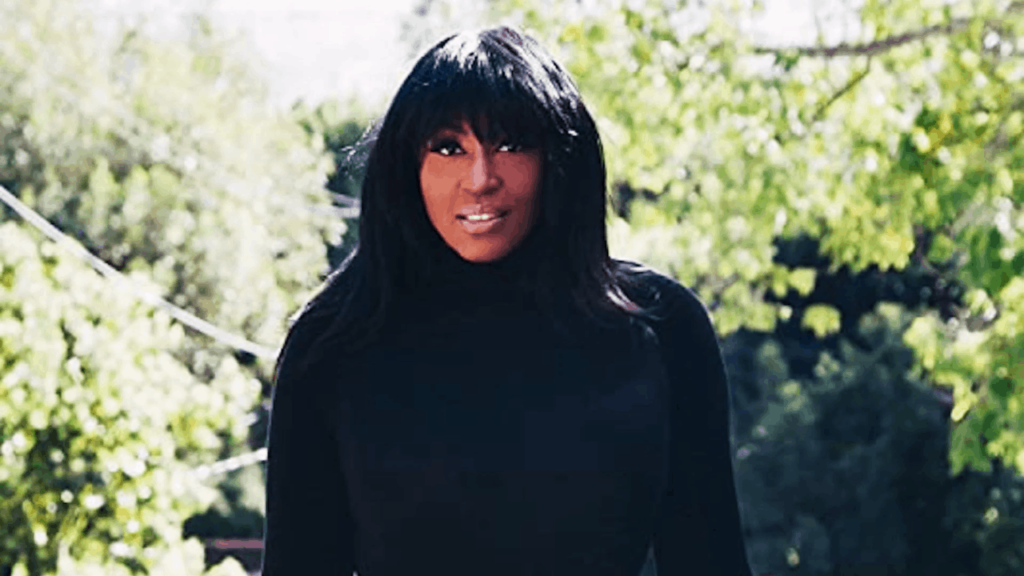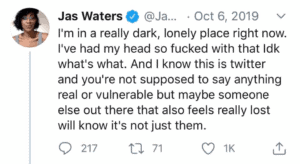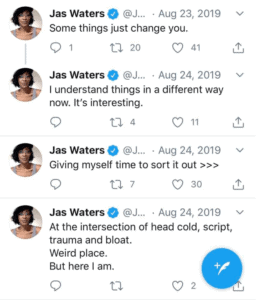
The cast and crew of “This Is Us” is still mourning the loss of one of their own, Jas Waters, who died at the age of 39 in 2020.
Waters worked on the second season of NBC’s flagship drama series This Is Us. She most recently wrote on Showtime’s Kidding. Her other TV writing credits include VH1’s The Breaks and Comedy Central’s Hood Adjacent with James Davis. She also has a story-by credit on the Taraji P. Henson feature What Men Want.
This Is Us creator Dan Fogelman said of Waters on Twitter, “This news took my breath away. Jas was absolutely brilliant and had so many stories still to tell. She made an indelible mark on our show and my heart breaks for her loved ones.
The Los Angeles County Medical Examiner-Coroner just released Waters’ cause of death Thursday, writing she had died by suicide.
Reports are coming in that it was by hanging herself.
But how can this be? Jas was a beautiful Black woman, who was also successful in Hollywood with accolades from her peers and notable stars. It seems like she had everything going for her. So what happened?
Many take a look back at her social media and try to piece together some sort of reason or find the point when she might have begun to feel this way. Some see a few questionable areas where she may have been feeling like something's wrong. Take a look at some of her tweets from 2019 below:



Maybe the better question to ask is, what happens in the minds of Black women in general who commit suicide?
Anxiety disorders are the most common mental health disorder in the United States. According to the Anxiety and Depression Association of American, data shows that for Black women, anxiety is more chronic and the symptoms more intense than their White counterparts.
Out of four primary subgroups in the United States—white males, black males, white females, and black females—the latter group, black females, has and has always had the lowest rates of suicide, according to a report by the Centers for Disease Control.
But many things contribute to the anxiety and suicide of Black women that we don't talk about enough, like workplace anxiety. In the workplace, Black women often find themselves the only one or the first one. In these situations, they have been taught that they have to be twice as good to go half as far, that they are representing the race and that they...
...are being watched and scrutinized more closely than their white counterparts. These beliefs coupled with the myth that they have to always be the "Strong Black Woman" can dramatically increase risk for anxiety.
PTSD also plays a role. The rate of sexual assault among Black women is 3.5 times higher than that of any other group in this country. Black women are also less likely to report their assault. Many suffer in silence for years, never sharing with anyone what has happened to them. Thus, the trauma remains unnamed, unknown and untreated and the symptoms worsen.
Racism is also a form of trauma that disproportionality affects Black women (and men). Trauma in the form of racism can be directly or indirectly experienced. Driving while Black, shopping while Black, and everyday racial micoraggressions are direct examples of racial trauma, which we have seen a lot of lately. The most common indirect examples are the viral videos of unarmed Black women and men being killed. Vicariously witnessing race-based trauma, can be as devastating as the direct form.
While we never know what was truly going on in the mind of Jas, we feel for her family and many other Black women like her. Her story and many like hers, call for some radical friendship, not only among her girlfriends, but with platonic Black men as well. The kind of friendship that is honest, truth-seeking and comforting.
'This Is Us' writers posted a tribute to Waters on their Twitter page, writing they were “devastated” to lose her.
“In our time together, Jas left her mark on us and ALL over the show,” the writers tweeted. “She was a brilliant storyteller and a force of nature… She was one of us."
Yes, she was one of us and we miss her.









